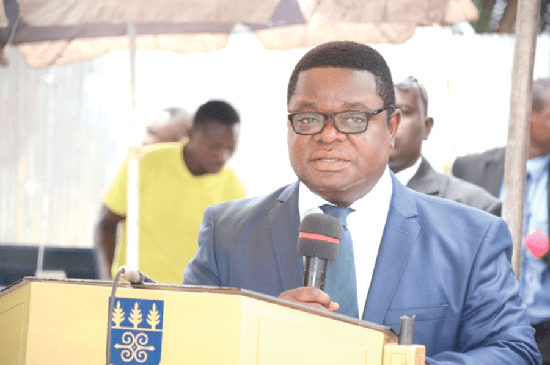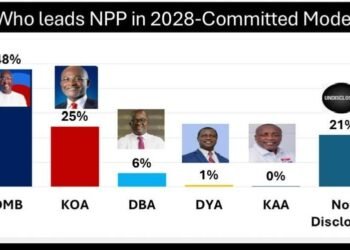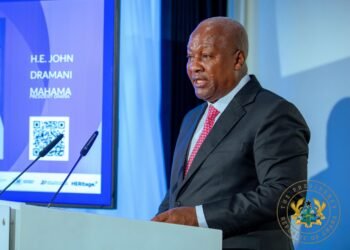Ernest Owusu Bempah, the New Patriotic Party’s (NPP) Deputy Director of Communications, has claimed that with the $3 billion bailout from the International Monetary Fund (IMF) in place, Ghana’s economy will fully recover.
According to Mr. Owusu Bempah, the bailout will support the economy and aid the government in meeting its commitments, such as paying contractors.
“The Ghanaian economy will bounce back and NPP will win the hearts of Ghanaians with the coming of the IMF loan facility. This will cushion the economy; it has already restored investor confidence in our economy.”
Ernest Owusu Bempah
Additionally, the agreement will “bring down inflation and help the government to finance most development projects, contractors will be paid. Ghanaian people must have confidence in the NPP to deliver a better economy”, he asserted.
Gov’t Advised On Spending IMF Money
In response to the IMF’s approval of Ghana’s $3 billion bailout, Professor Peter Quartey, Director of the Institute of Statistical, Social, and Economic Research (ISSER) at the University of Ghana, said that while the bailout will offer some short-term relief, the government must use the benefits to address the economic flaws for long-term gains.
He observed that succeeding governments spend extravagantly during election years, as if there were no tomorrow, and then attempt to reform the system in the two to three years that follow the elections. He asserted that this pattern needs to change in order to lessen the country’s reliance on outside entities for existence.

“Of course, the unexpected may happen, and shocks may happen or may occur. We have seen Covid come, we have seen Russia Ukraine war, it is not the end of such external shocks any of them can come again. So, we need to have some cushion, we don’t have to borrow too much.
“When we are hit with a pandemic or any external shocks, then we can borrow to cushion ourselves and get out of the problem. But if we borrow to the brim and we are hit with the shock, that is where we are found wanting.”
Professor Peter Quartey
After stating that the $3 billion bailout will be subject to conditions, including a block on public sector hiring, he also instructed the government to expand the private sector of the economy, in order to create more jobs. Thus, resulting in a greater demand for jobs in the private sector.
This, he claimed, provides a compelling argument for the government to concentrate on encouraging the participants in the private sector to grow their enterprises and hire more people.
According to him, the private sector can endure and absorb part of the labor falls that would have otherwise been absorbed by the public sector, if government is successful in growing it. He claimed that the private sector must expand, since the public sector cannot employ everyone on its own.
“But also, what I expect to see going forward; investor confidence coming back. It comes with resources, so we are going to get the balance of payment support that can help us service some of our debts. It can help us pay for some necessary imports, whatever we need to import that money can be relied upon.
“That can help shore our reserves and also ensure some exchange rate stability. Lately, we have seen the level of depreciation of the Cedi, as reduced and we have seen an even level of appreciation occurring.”
Professor Peter Quartey
According to Professor Quartey, Ghana prepared and agreed to every requirement that would be associated with the program.
“The IMF will sit with you, and discuss with you where you find yourselves and where you want to go, and what measures you want to take to ensure debt sustainability. What are the measures to take to ensure that you enhance your revenue mobilization, to ensure fiscal discipline? You grow your economy and you ensure stability?
“These are programmes that we prepared as a country and submitted to the IMF, so I don’t think you will see anything different from what we had agreed to. If there are harsh conditions, it is something that we have agreed to sign onto.”
Professor Peter Quartey
READ ALSO: The Government Will Continue Its Campaign Against Unlawful Mining– Abu Jinapor























